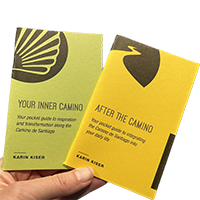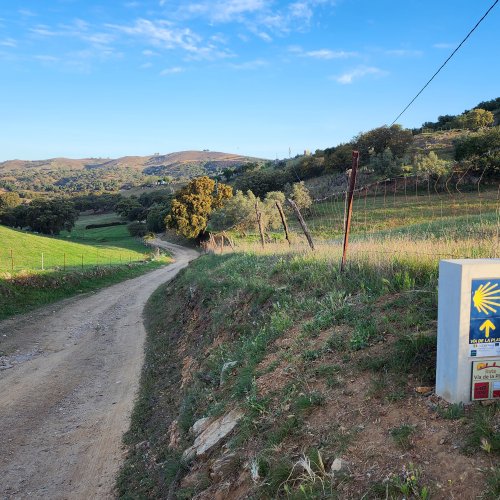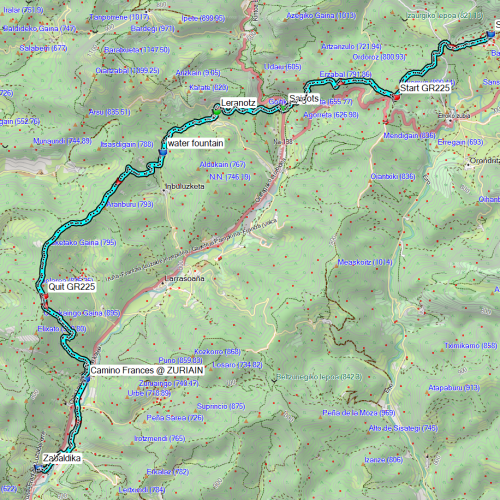- Time of past OR future Camino
- First one in 2005 from Moissac, France.
Was running the brain in idle, just ticking over, and found I was thinking about medieval versus modern pilgrims and it occurred to me that they may not have become as tired as the modern pilgrim ....
I based this assumption on the thought that they may not have split the distance into specific day stages? It seems that most fatigue/stress/damage problems are to do with completing within a certain time limit - usually 33-35 days or so as well as that strange driven compulsion you see many pilgrims have, to get to a refuge - walking in the dark, racing through the countryside, then waiting outside a refugio in a queue for hours until it opens .... but if you have met a camper on the Camino you would have invariably found them to be relaxed and unstressed and undamaged .. mainly because of the certain knowledge that they can stop whenever they want to ...as well as the laissez faire mind-set they bring with them
so - were the medievals like this? Did they just stroll along - stop when tired, sleep when sleepy? They certainly didn't have the time restraints that most moderns have - nor wristwatches! - nor the need to get back to work at a certain date .. (if they did get back of course) ..
So - what do you think? Anyone know?
I based this assumption on the thought that they may not have split the distance into specific day stages? It seems that most fatigue/stress/damage problems are to do with completing within a certain time limit - usually 33-35 days or so as well as that strange driven compulsion you see many pilgrims have, to get to a refuge - walking in the dark, racing through the countryside, then waiting outside a refugio in a queue for hours until it opens .... but if you have met a camper on the Camino you would have invariably found them to be relaxed and unstressed and undamaged .. mainly because of the certain knowledge that they can stop whenever they want to ...as well as the laissez faire mind-set they bring with them
so - were the medievals like this? Did they just stroll along - stop when tired, sleep when sleepy? They certainly didn't have the time restraints that most moderns have - nor wristwatches! - nor the need to get back to work at a certain date .. (if they did get back of course) ..
So - what do you think? Anyone know?












